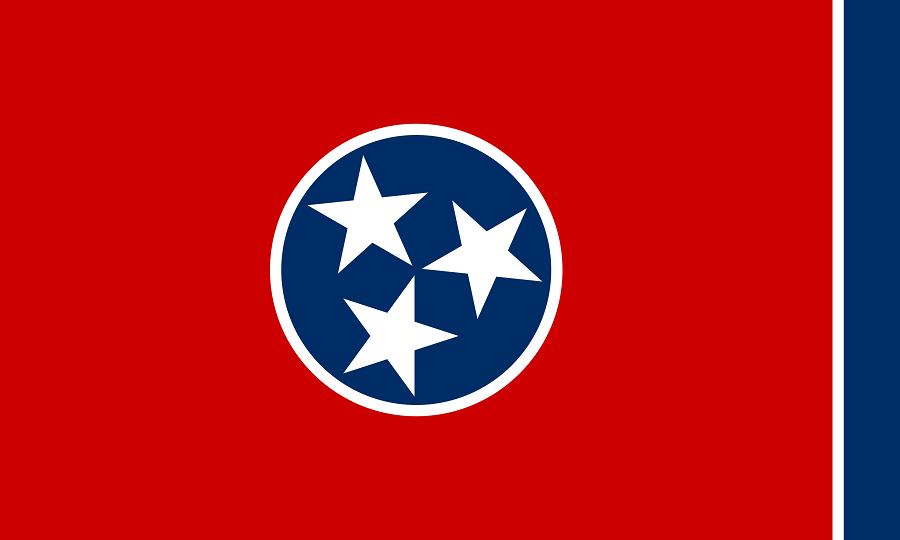Today, the Tennessee Department of Human Services (TDHS), in partnership with Governor Bill Lee and the Families First Community Advisory Board, recognized the 7 collaborative groups selected for $175 million in Implementation Grants to further the Department’s vision of fundamentally changing the way low-income families are served in Tennessee. Soon, each public-private collaborative group will kick off pilot projects aimed at addressing barriers faced by low-income, TANF-eligible Tennesseans. The Tennessee Opportunity Pilot Initiative is a 3-year effort, with each of the 7 pilot projects funded through $25 million Temporary Assistance for Needy Families (TANF) grants.
Each pilot project has a different strategy in how services will be carried out, and their activities will be measured using a universal assessment tool. The intention of the pilot initiative is to explore various service interventions that set low-income Tennesseans on a path of reduced dependency on government funded social service programs, while increasing their capacity toward upward mobility and self-sufficiency.
“There are fundamental flaws in the social services safety net that have for too long counted the administration of services as a measure of success,” said TDHS Commissioner Clarence H. Carter. “The pilot projects that we celebrate today could demonstrate viable solutions and promising practices that address the flaws and better position those we collectively serve to thrive rather than survive.”
Martha O’Bryan Center - Will pair community-driven wraparound supports, family-centered coaching, and employment and training pathways with a transitional benefit that mitigates the benefits cliff and increases Middle Tennessee’s families’ incentive to earn more. (Serving Davidson, Dickson, Maury, Montgomery, Rutherford, Sumner, and wilson Counties).
The six addiotional aspects of each pilot initiative are described below:
- Families Matter - Will address challenges faced by low-income fathers to increase economic mobility and earning capacity, increase sustained child support payments, and build capacity for healthy parenting and co-parenting. (Serving Shelby County)
- University of Memphis - Will braid and leverage resources through a broad, regional approach that increases nontraditional child care capacity, accelerates work readiness programming that leads to high-quality jobs and college credit, and provides training and access to capital for microbusinesses. (Serving 21 west Tennessee counties)
- Family & Children’s Service - Will reduce and mitigate systemic barriers that prevent families from leaving generational poverty by coordinating the work of existing organizations to create a comprehensive, connected social services and family-centered workforce development network. (Serving 28 middle Tennessee counties)
- Upper Cumberland Human Resource Agency – Will target families who are currently unemployed and those who have never entered the workforce through a new continuum of care process that reduces duplication across human services programs and increases workforce participation, job readiness, placement, and advancement. (Serving Cannon, Clay, Cumberland, Dekalb, Fentress, Jackson, Macon, Overton, Pickett, Putnam, Smith, Van Buren, White, and Warren counties)
- First Tennessee Development District Foundation - Will build a results-based network that supports responsive relationships, reduces sources of stress, and strengthens core skills to increase low-income families’ economic mobility, self-sufficiency, and well-being. (Serving Carter, Cocke, Greene, Hamblen, Hancock, Hawkins, Johnson, Sullivan, Unicoi, and Washington counties)
- United Way of Greater Knoxville - Will use an evidence-based coaching model to match each family’s assets and needs with essential and timely programs and services, disrupting silos of service delivery through an innovative redesign of care coordination that increases social opportunities. (Serving Anderson, Blount, Claiborne, Grainger, Jefferson, Knox, Sevier, and Union counties)
- The implementation of the Tennessee Opportunity Pilot Initiative is only one component of the TANF Opportunity Act, legislation that passed in 2021. The TANF Opportunity Act offers a pathway to self-sufficiency for TANF recipients, provides for an investment in community partnerships through both the spend down of the TANF reserve and plans for recurring dollars, while also strengthening protections against fraud, waste, and abuse. Since the Tennessee Opportunity Act went into effect, the Families First Community Advisory Board has been established, Families First (the state’s TANF program) recipients have received increases in their monthly cash assistance, and community grants totaling more than $100 million will be awarded to 44 organizations.
Details on the Tennessee Opportunity Act, the state’s plan for effectively utilizing TANF funds, and more information on Tennessee Opportunity Act components can be viewed on the TDHS website here. View previous announcements regarding the Tennessee Opportunity Act on the TDHS news page.
Click here to learn more about how the Tennessee Department of Human Services is working to Transform Tennessee Together.





